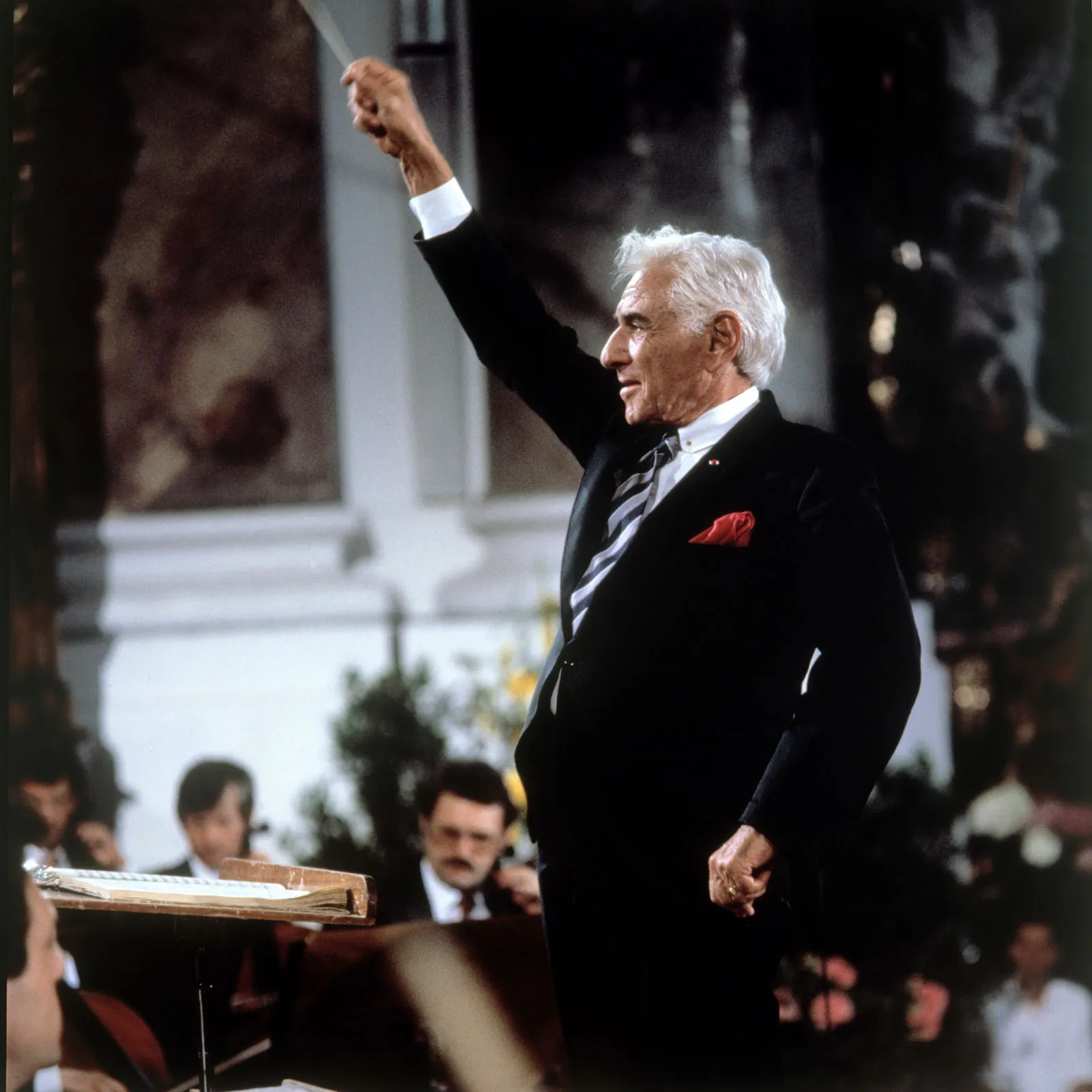
Leonard Bernstein
Leonard Bernstein, born on August 25, 1918, in Lawrence, Massachusetts, was a multifaceted musical genius whose impact reverberates across the realms of classical music, conducting, and advocacy. From his early days of piano lessons to his groundbreaking contributions as the Music Director of the New York Philharmonic, Bernstein’s journey is a symphony of inspiration. This article explores the life and legacy of this extraordinary personality, delving into his musical achievements, global influence, and unwavering commitment to humanitarian causes.
Early Life and Education:
Bernstein’s musical odyssey began with piano lessons during his youth, paving the way for a brilliant academic journey. His time at Harvard University and the Curtis Institute of Music shaped his musical prowess under the guidance of notable mentors. The unofficial conducting debut with his own incidental music to “The Birds” marked the initial crescendo of a career destined for greatness.
Rising as a Conductor:
1943 proved to be a pivotal year for Leonard Bernstein as he assumed the role of Assistant Conductor of the New York Philharmonic. A last-minute substitution at Carnegie Hall catapulted him into the spotlight, earning critical acclaim. This marked the beginning of a global journey as orchestras worldwide sought his talents. His tenure as the Music Director of the New York Philharmonic, starting in 1958, further solidified his reputation as a maestro of unparalleled skill.
Global Influence:
Bernstein’s baton reached across continents, with performances in London, Prague, Tel Aviv, and Milan. A staunch advocate of American composers, he maintained a close friendship with Aaron Copland and played a pivotal role in popularizing Copland’s works. Notably, Bernstein’s performances of Mahler’s symphonies in the 1960s sparked a renewed interest in the composer’s oeuvre.
Musical Legacy:
Inspired by his Jewish heritage, Bernstein composed impactful works such as Symphony No. 1: “Jeremiah,” Symphony No. 2: “The Age of Anxiety,” and Symphony No. 3: “Kaddish.” These compositions reflected his depth of emotion and cultural resonance. Festivals worldwide commemorated Bernstein’s dedication to music, with special mention of the Israel Philharmonic’s tribute in 1978.
Educator and Advocate:
Beyond the conductor’s podium, Bernstein left an indelible mark as an educator. His writings, including “The Joy of Music” and “Leonard Bernstein’s Young People’s Concerts,” showcased his passion for teaching and engaging with young musicians. Master classes at Tanglewood and contributions to global music festivals underscored his commitment to nurturing musical talent.
Global Harmony and Advocacy:
Bernstein’s concern for world peace echoed in his speeches and actions. His “Journey for Peace” tour in 1985, commemorating the 40th anniversary of the atom bomb, exemplified his dedication to global cooperation. The historic “Berlin Celebration Concerts” in 1989, amid the dismantling of the Berlin Wall, highlighted his belief in the unifying power of music.
Humanitarian Legacy:
Leonard Bernstein’s advocacy extended beyond music, supporting Amnesty International and establishing the Felicia Montealegre Fund in memory of his late wife. His commitment to humanitarian causes earned him honors and awards from around the world, including the Kennedy Center Honors in 1980.
Legacy and Recognition:
Leonard Bernstein’s accolades were numerous, including a Lifetime Achievement Grammy Award in 1985 and induction into the American Academy of Arts and Letters. The Premium Imperials in 1990 recognized his lifetime achievements, and he used the prize to establish The Bernstein Education Through the Arts (BETA) Fund, Inc.
Underground poet wrote Bernstein poem here
In the maestro’s hands, the baton danced,
A symphony of passion, a life enhanced.
Notes soared, a musical flight,
In Bernstein’s world, where day met night.
Jeremiah wept in symphonic grace,
A journey through time, a cultural embrace.
Age of Anxiety, a piano’s tale,
Echoes of truth, like a ship’s lone sail.
Kaddish spoke of memories profound,
A tribute to Kennedy, an eternal sound.
Festivals celebrated, worldwide acclaim,
In Bernstein’s legacy, music became.
Educator, advocate, a humanitarian’s heart,
Teaching the language of music, a transformative art.
Journey for Peace, a global call,
In Berlin’s concert halls, a united thrall.
Amid honors and awards, his baton laid to rest,
Yet, through BETA Fund, education’s quest.
In the notes he conducted, in the causes he bore,
Leonard Bernstein’s symphony lives evermore.
Conclusion:
Leonard Bernstein’s life was a symphony of artistry, advocacy, and global harmony. From his early days as a pianist to his monumental role as a conductor and educator, Leonard Bernstein’s influence transcends time. His commitment to music, education, and humanitarian causes cements him as an inspiring figure whose legacy continues through the notes of his compositions and the hearts of those touched by his art. You may love to read about his full bibliography of Leonard Bernstein at britannica.com post.
